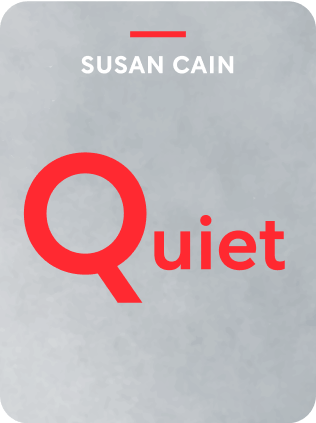

This article is an excerpt from the Shortform book guide to "Quiet: The Power of Introverts" by Susan Cain. Shortform has the world's best summaries and analyses of books you should be reading.
Like this article? Sign up for a free trial here .
Are you an introvert? How can you tell what your personality type is?
Introverts have some common traits that can be identified, even though it doesn’t amount to a scientifically valid personality test. So, are you an introvert? You can get a good sense by reflecting on these traits and questions.
Read on for the answer to the question, “are you an introvert?”
Are You an Introvert?
If you’re not sure whether you’re an introvert, you can get an idea by considering the extent to which the following traits, which many introverts share, apply to you (this isn’t a scientifically valid personality assessment):
- You prefer one-to-one conversations.
- You enjoy time alone.
- You don’t like small talk but enjoy in-depth conversations about topics that interest you.
- You prefer to work alone on one thing at a time, and dislike interruptions.
- You’re a good listener.
- You prefer to think first rather than speaking off the cuff.
- You’re bothered by conflict.
- You’re exhausted by interacting with a lot of people.
The more items you agree with, the more introverted you may be. However, people usually fall on a spectrum between introverted and extroverted and no one is introverted or extroverted in all circumstances. Your introversion or extroversion also is affected by your personal experiences and other personality traits, such as sensitivity.
If you’re an introvert, some aspects of this book will apply to you while others won’t. Rather than establishing strict definitions, this book explores broad questions, such as whether introverts can be leaders, whether they should ever act like extroverts, and whether introversion/extroversion is biologically or socially determined.
What the author hopes you’ll gain from the book is a sense of entitlement to be yourself, which can be life-changing.
Exercise: What’s Your Personality Type?
A half to a third of Americans are introverts, according to studies. They tend to be quiet, thoughtful, and prefer less stimulation than extroverts. They also may prefer to work alone, focusing on one task, while extroverts are multitaskers and thrive in busy environments. So, are you an introvert?
- Where do you fall on the introversion-extroversion scale? Which personality traits, preferences, or behaviors make you believe you’re more introverted, more extroverted, or a balance of both?
- What are some strengths you have because of your personality type?
- Can you point to a situation where these strengths benefited you? In what way?

———End of Preview———
Like what you just read? Read the rest of the world's best book summary and analysis of Susan Cain's "Quiet: The Power of Introverts" at Shortform .
Here's what you'll find in our full Quiet: The Power of Introverts summary :
- How society overvalues extroverts
- Why introverts' overlooked strengths are the key to greater success in work, school, and society
- How extroversion caused the fall of Enron






